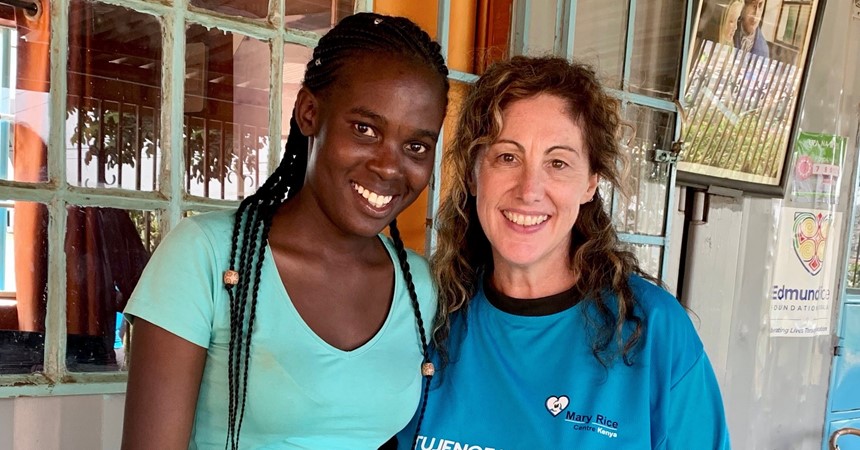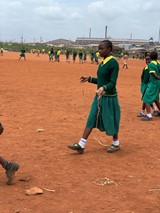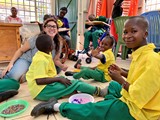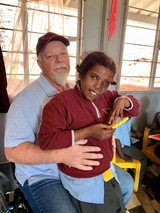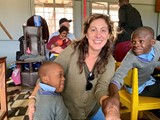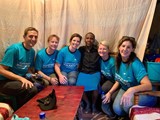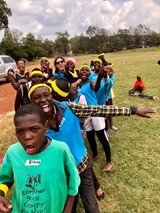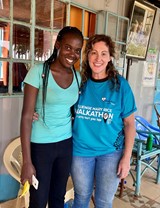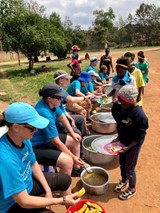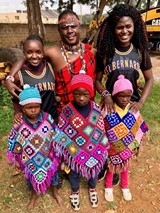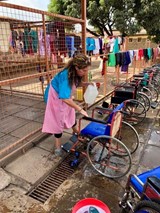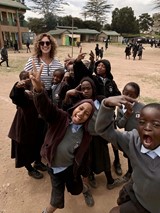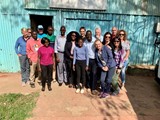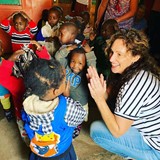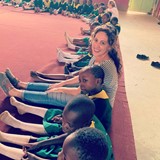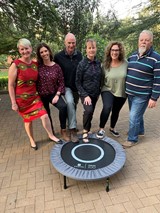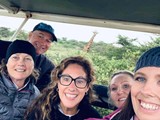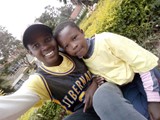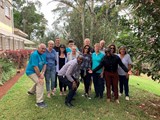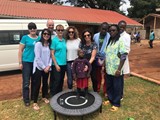Kesheni means ’stay awake’; I did not understand what this really meant until after I came home and reflected on my journey.
We had met as a group prior to leaving for Kenya and we read Ann Cerreto’s book, I Am Because We Are, Stories of Kibera’s Youth. We listened to stories from others who had already experienced Kesheni, but I was still unaware of the impact this journey would have on me.
All my family, friends and colleagues wished me a great holiday, but this was far from a holiday. I have never had an experience quite like this and I hope to one day return to Nairobi and the wonderful people I met.
We spent our first few days visiting and learning about The Ruben Centre, which is like a sanctuary in the middle of Mukuru slum.
It houses a health clinic, HIV clinic, a birthing centre, a daycare for infants, the Kurt Fearnley centre for disabled students, a primary school and a counseling service for the students. They also have their own sustainable garden, a charcoal making facility, vocational education centre with weaving and sewing classes, a shop (where we purchased many beautiful hand made items to bring home) and a radio station, Ruben FM.
The days that followed saw us visiting other wonderful agencies such as the Wings of Hope Home (a place for young girls who find themselves pregnant through no fault of their own), the Mary Rice Centre for disabled children in Kibera, the Women for Women centre and Mother Teresa Home for the Destitute. All these places were so confronting and for some of us, overwhelming.
For me, one of the most powerful and enlightening experiences I had was walking through the Kibera slum with my Karibu Youth Leader, Marell, and visiting her home with her.
It is impossible to describe this experience, all your senses are assaulted and it is difficult to breathe. Every corner you turn through this maze of rusty tin you are confronted with more alleyways, more rubbish and more poverty.
The slum is the largest in the world, home to more than two million people. The homes are simple, some in better condition than others. There is no bathroom in the houses, therefore no toilet and no kitchen, just a small living space and a curtain to separate the sleeping area.
I will forever remember this not because of how confronting it was, but for the love, sense of community and pride these people have.
The Karibu Youth Camp was another highlight of the trip. Seeing the young leaders that have grown up in Kibera and are giving up their time to be with the children of Kibera to give them a day away from the slum, a day of play, to run in the open, play games, work in teams and forget their everyday life - it was amazing.
During some of our downtime, we visited the African markets, the Bomas Cultural Centre, spent a day in Nairobi National Park and went on a drive to see Rift Valley, Sheldrick’s Elephant Orphanage and the Giraffe Manor.
Each night we came home to the Little Daughters of St Joseph’s convent where we debriefed about our day and enjoyed a wonderful African meal prepared by the nuns.
Now I know what Kesheni really means. To ‘stay awake’ to what is going on around you and that what you see on the surface is so little of what is really out there.
Stay connected with your community and work together, for alone you can do little but together you can make a difference. Do not think of yourself as one, but as part of a bigger picture.
For the world to be a better place, we need to look after each other and love each other, support those with little and help those with nothing and always remember that love and forgiveness is key to happiness.
I will be forever grateful for this opportunity. To have experienced it with nine other wonderful educators, to have made life long connections and to have been led by Michael and Alison Slattery, was truly an honour.
